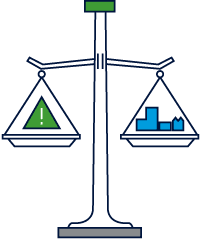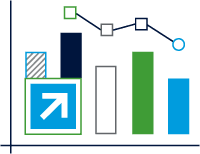AUTHORS




Possibly the most significant development in the international taxation of global multinational corporations in the last decade has officially arrived in Australia.
Australia’s enactment of the OECD’s Global Anti-Base Erosion Model (“GloBE”) Rules has finally received Royal Assent just prior to the end of the reporting period for which the rules are anticipated to first take effect.
This article provides some key insights and information that should be considered by any Multinational Enterprise (“MNE”) Group that will be affected by the GloBE rules.
Brief recap – What is GloBE?
In October 2021, over 135 jurisdictions joined a groundbreaking plan to update key elements of the international tax system which was determined to be “no longer fit for purpose” in a globalised and digitalised economy. The GloBE rules provide for a co-ordinated system of taxation that imposes a top-up tax on profits arising in a jurisdiction whenever the effective tax rate, determined on a jurisdictional basis, is below the minimum rate (15%).
The rules are aimed at MNE Groups with consolidated accounting revenue of greater than €750m. Where an MNE Group is in scope of the rules, they can expect to have significant additional reporting obligations in jurisdictions that have enacted local GloBE rules.
The GloBE rules will apply for income years commencing on or after 1 January 2024 meaning that the income year ending 31 December 2024 will be in-scope for those with an early balancing substituted accounting period.
The Australian GloBE regime
On 10 December 2024, the primary legislation consisting of the following three Bills received Royal Assent:
- Taxation (Multinational – Global and Domestic Minimum Tax) Imposition Bill 2024 (the Imposition Bill);
- Taxation (Multinational – Global and Domestic Minimum Tax) Bill 2024 (the Assessment Bill); and
- Treasury Laws Amendment (Multinational – Global and Domestic Minimum Tax) (Consequential) Bill 2024 (the Consequential Bill).
These Bills, together with pending subordinate legislation, constitute Australia’s implementation of the GloBE Rules. The underlying subordinate legislation (containing supplementary rules for the substantive computation of GloBE top-up tax and the Transitional CbCR Safe Harbour) is currently in process of being registered as a legislative instrument.
It is now crucial for in-scope MNE Groups to prepare to comply with its GloBE obligations.
Lodgement obligations
Subject to the impending registration of the relevant subordinate legislation, large Australian groups or in-bound subsidiaries of in-scope MNE Groups can expect to have up to four additional reporting obligations, being;
- A GloBE Information Return (“GIR”)

- A Foreign lodgment GIR notification (where the GIR is not lodged locally)
- Australian income inclusion rule (“IIR”) / Under taxed payments rule (“UTPR”) “Global Minimum Tax Return”
- Domestic Minimum Tax Return
It is currently intended that the reporting obligations will be submitted as one combined form (per reporting entity) with multiple sections. This form is currently being drafted by the ATO and may be subject to further changes.
To simplify the reporting and provide much needed compliance relief for multiple reporting Australian entities within an MNE Group, a Designated Local Filing Entity (“DLFE”) can be nominated by all the Australian Group entities such that there will be only one lodgement requirement in Australia. This concession is only available provided that all the Australian entities within the MNE Group opt in. A similar concession will be available for the GIR / GIR notification where a Designated Foreign Filing Entity (“DFFE”) is nominated by the MNE Group to lodge the GIR with the foreign government agency on behalf of the Group, such that there will be only one lodgement requirement for the Group.
Penalty regime
The existing administrative penalty regime will apply to GloBE lodgement obligations. This includes the punitive, Failure to Lodge (“FTL”) penalty which applies to Significant Global Entities. The ATO have flagged their intention to adopt the OECD’s guidelines with respect to transitional penalty relief, however have noted that “reasonable measures” must have been taken to comply.
It is important to note that any FTL is applied on a reporting entity basis. As such, if the DFFE or DLFE lodges late, each group entity which nominated the DFFE or DLFE to file on their behalf is also taken to have lodged late (in addition to the DFFE or DLFE itself). In other words, the FTL penalty can apply to each group entity within the MNE Group.
Safe-harbours
There are several safe harbours available to in-scope MNE Groups. The most commonly sought after safe harbour is the Transitional CbC (i.e., Country-by-Country) Report Safe Harbour which, as the name suggests, is an interim safe harbour for income years ending up 30 June 2028.
Satisfying the Transitional CbC Report Safe Harbour allows a reporting entity to obtain the following benefits:
- the jurisdictional Top-up Tax is deemed to be nil;
- no detailed GloBE calculations would be required for the jurisdiction under the full IIR or DMT; and
- the compliance burden is significantly reduced.
However, satisfying the eligibility criteria for this safe-harbour should not be considered a given. Group’s seeking to rely on this safe-harbour must have both Qualified Financial Statements and a Qualified CbC Report. A myriad of technical issues need to be considered in order to establish whether the information contained in a CbC Report is sufficient to allow it to be qualified for the purposes of the GloBE rules. By way of an example, the US’s Form 8975 – broadly the US’s equivalent of a CbC Report - should not be considered to satisfy the requisite criteria without a detailed review due to some key differences in the information contained in the Form 8975.
Groups should carefully consider whether changes in the preparation of an MNE Group’s CbC Report are required if it wants to rely on this safe-harbour.
Critically, if an MNE Group is ineligible to rely on this safe-harbour for their first applicable income year (generally, being income years starting on or after 1 January 2024), they become ineligible for the entire transition period. Therefore, for MNE Group’s seeking to rely on this safe-harbour, it is essential that they establish whether they are eligible for this safe-harbour in every jurisdiction that they are seeking to apply it as soon as possible.
Another key safe harbour will be the Qualified Domestic Minimum Top-up Tax (“QDMTT”) Safe Harbour. The QDMTT Safe Harbour operates by setting the Top-up Tax to zero for jurisdictions that apply a QDMTT that reaches qualified status under the OECD peer review. Where QDMTT Safe Harbour is available, it eliminates the requirement to undertake a second calculation under the GloBE rules. The Australian Domestic Minimum Tax is currently under OECD peer review and has been intentionally drafted to reach qualified status. The outcome of this peer review is imminent
Additional disclosures in Financial Reports
The International Accounting Standards Board (IASB) has updated IAS 12 ‘Income Taxes’ to introduce specific disclosure requirements for dealing with the GloBE Rules. For MNE Groups that apply IFRS, these additional reporting requirements will be required to be considered where the GloBE Rules are enacted or have been substantively enacted[2]. 
In addition to this, the IASB have also issued an amendment to IAS 12 that provides temporary relief from accounting for deferred taxes (as part of the calculation process) that arise from the implementation of Pillar Two.
Similar relief is available for MNE Groups that apply US GAAP. The US Financial Accounting Standard Board (FASB) has confirmed that Pillar Two tax is considered an alternative minimum tax and therefore, there is no requirement to account for deferred taxes for the estimated future effects of Pillar Two taxes.
As noted above, the subordinate legislation is currently being registered as a legislative instrument. It is therefore up to the MNE Group auditors interpretation of the standards to determine whether the legislation is substantively enacted. However, given that the primary legislation has received Royal Assent and subordinate legislation will not be required to be debated in the Senate, with only a 15 days for it to be disallowed from the date of registration, we query if this is a distraction from the more important issue being that the rules are here and an impact assessment should be undertaken.
Australian specific considerations
For income years commencing on or after 1 January 2024, in-scope MNE groups will need to have undertaken an assessment of the application of the rules to determine what disclosures will need to be made in either their full financial year reporting or half-year financial reporting. MNE Groups impacted by these rules should therefore establish their position with regards to their approach to the GloBE Rules, with the easiest starting point being the CbC Report Transitional Safe Harbours, as a matter of urgency.
- Whilst many MNE Groups will centrally manage the GloBE Rules, it should not be assumed that what is relevant for some subsidiary members of a group will be relevant for all. Australian subsidiaries and branches should ensure they have confirmed that the adopted approach by the Group will be applicable for them.
- MNE Groups should start considering which entity would make most sense to be nominated as DFE or DLE to lodge the GIR. For example, an Australian entity within an Australian group owned by a US group may be best placed to be nominated as DLE of the GIR as the GloBE rules have not been adopted by the US yet.
- The Australian GloBE rules contain record-keeping requirements that establish an obligation for Australian entities to detail how they are complying with the GloBE rules. There are also penalties that apply to a failure to keep adequate documentation on file.
- While the GloBE rules will significantly increase the compliance burden of Australian entities impacted by these rules, it is anticipated that it will be unlikely result in MNE Group’s paying more tax in Australia. This further emphasises the benefit of qualifying for the CbC Report Transitional Safe Harbour, thereby reducing associated compliance costs.
RSM Australia’s Pillar Two (GloBE Rules) team are ready to assist MNEs with understanding their GloBE Rules compliance and reporting obligations.
FOR MORE INFORMATION
If you would like to learn more about the topics discussed in this article, please contact your local RSM office.
[1] The UTPR will apply from income years commencing on or after 1 January 2025
[2] In Australia, the IASB have indicated that this will generally be where legislation has passed both houses and there is little to no uncertainty about the outcome of the tax bill.




